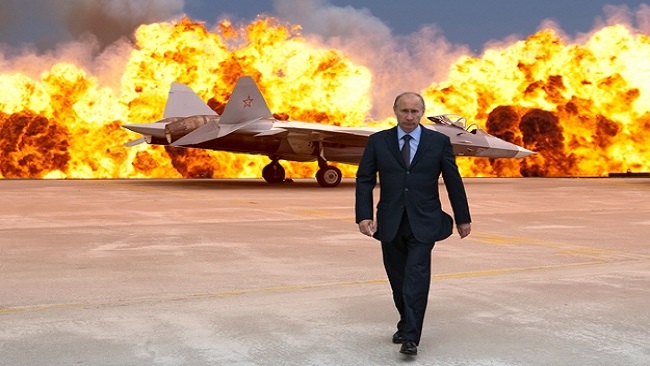So many Russian diplomats dying!!
Russian ambassador Migayas Shirinskiy has become the eighth Kremlin diplomat to die since the election of Donald Trump in November 2016, sparking conspiracy theories.
Shirinsky, ambassador to Sudan, was swimming in the pool of his residence in Khartoum last Wednesday when he seemed to suffer a heart attack.
While there is no evidence to suggest his demise was suspicious, he is just the latest in a string of Russian emissaries to die unexpectedly. Foul play has been ruled out in some cases, but questions linger in others.
“That’s either because the facts have changed over time, details are hard to come by, or the deaths are still under investigation,” says CNN.
“The readily available plot,” says The Washington Post’s Philip Bump, is that “Donald Trump had been elected president with the quiet support of Russian actors and someone at the Kremlin was now mopping up the evidence.”
Who, what, when, where and why?
According to some conspiracy theorists, the curious deaths started on 8 November 2016 when Donald Trump was elected US President and Sergei Krivov, duty commander of the Russian consulate in New York, was found dead with a head wound.
“Initial reports said he had fallen to his death from the roof, but consulate officials said he had a heart attack and hit his head,” reports the Daily Telegraph.
In December 2016, the body of Roman Skrylnikov, a temporary employee at the Russian consulate in Kazakhstan, was found in his rented apartment. The cause of death was officially recorded as a heart attack.
“None of the Russian reports mentioned Skrylnikov’s age, nor could anybody explain what exactly the diplomat was doing in Kazakhstan,” says The Daily Beast.
Two more diplomats died in violent circumstances during the same period: Russia’s ambassador to Turkey, Andrei Karlov, 62, was shot dead by a Turkish policeman at an Ankara photography exhibition on 19 December.
On the same day in Moscow, Petr Polshikov, 56-year-old chief adviser to the Russian Foreign Minister’s Latin American affairs department, was found dead from a gunshot wound in his apartment.
Next, an ex-KGB chief suspected of helping draft the dossier on Donald Trump’s links with Russia, Oleg Erovinkin, was found dead on 26 December in the back of his car in Moscow, reports The Independent.
Andrey Malanin, 54, a senior diplomat in Russia’s Athens consulate was found dead on his bathroom floor by another member of embassy staff on 9 January.
That was followed by the death of Alexander Kadakin, Russia’s 67-year-old Ambassador to India, who died after a “brief illness” on 27 January.
A spokeswoman from the Russian foreign ministry said there was nothing “special or extraordinary” about Malanin’s or Kadakin’s death.
Vitaly Churkin, Russian ambassador to the UN, died one day before his 65th birthday on 20 February, of an apparent heart attack, according to the Russian mission at the UN.
A ninth incident involved former Russian MP Denis Voronenkov. While Voronenkov was not a Russian diplomat, the 45-year-old’s death was notable in that he was gunned down outside a hotel in Kiev, Ukraine.
Voronenkov and his wife had spoken out against Russian President Vladimir Putin after they left Russia. Ukraine’s President called the shooting a “Russian state terrorist act”, but Russian authorities denied the accusation.
The grand conspiracy
“There’s no way around it: the deaths of eight high-ranking Russian diplomats in ten months (and not one after a prolonged illness) play into conspiracy theories and one of America’s favorite tropes, the Russian hit job,” says The Washington Post’s Max Bearak.
Describing the deaths as “unexpected” Axios notes that some were shot, while in other cases the cause of death is unknown.
The series of deaths have raised eyebrows, “especially since high-profile Russians have been killed abroad before”, says the Daily Telegraph.
While the deaths may just be “weird coincidences”, Rolf Mowatt-Larssen, an expert on US intelligence who served in the CIA for 23 years, told the Washington Post: “It is indisputable that [President Vladimir] Putin operates outside the rule of law.”
“Even historically speaking, Russian agents would be disappeared if they were compromised by moles from within the US establishment. I’m not saying that’s happening with these diplomats, but it’d be a huge story if it was true,” he added.
A more simple explanation?
But could the grand conspiracy actually have a much simpler explanation? Statistics compiled by the Russian health ministry show that almost half of Russians, 48.7 per cent, die from coronary-related illnesses. In 2016 the life expectancy for men in Russia was 66.05 years.
“By that metric, a 65-year-old with heart problems dying of a heart attack is not that surprising,” says the Washington Post’s Bump.
“There is nothing strange about Russian diplomats dying from heart failure,” Olga Bychkova, deputy editor-in-chief of radio Echo of Moscow, told The Daily Beast.
A senior observer of Russian politics, Bychkova “does not welcome any conspiracy theories around the frequent deaths of Russian diplomats”, The Daily Beast adds.
“Just as with, say, pipe-fitters, diplomats die after age 40. Many Russian men do. It is just that we pay more attention to the deaths of diplomats.”
Source: MSN News





